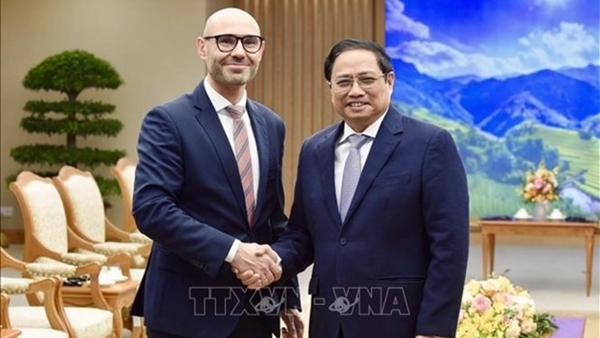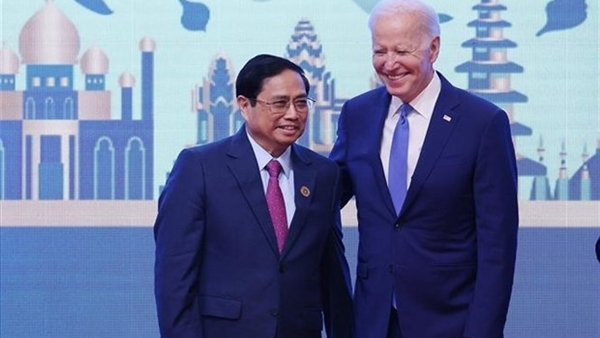PM chairs nationwide teleconference on policy communication
Prime Minister Pham Minh Chinh on November 24 chaired a nationwide teleconference on policy communication.
In his opening speech, the leader said in the process of building a law-ruled socialist State and a socialist-oriented market economy, the Party and State always consider people as a centre, subject, goal, driving force and resource of development. Every law gears toward the people who are also encouraged to engage in policy communication work, during which they are enabled to provide feedback on and benefit from policies.
In the Ministry of Information and Communications (MIC)’ report cited at the event, policy communication is a term in reference to activities of authorities, individuals and organisations to extend and share information, mostly with an aim to create a culture of publicising information while presenting and explaining decisions and actions of the State agencies.

Opinions shared a view that policy communication work has been renewed, from “internal communication” to mass communication. Following the 13th National Party Congress, new initiatives and methods have been taken in the entire political system to effectively disseminate Resolution of the Congress and others adopted by the Party Central Committee.
Courses to raise awareness of the Politburo and Secretariat’s resolutions, directives and conclusions were also held online nationwide.
Communication projects before and after every meeting of the National Assembly (NA) and NA Standing Committee were devised in details with specific goals, tasks and messages.
Under the direction of the PM, policy communication work is set as a key task that must be performed in an open, transparent, active and timely manner. As a results, its achievements have been seen in the fight against the COVID-19 pandemic and the economic recovery.
However, initial results have only been recorded in centrally-run agencies. In many localities, ministries and agencies, less attention is paid to the work.
The MIC also shared experience of China, Singapore, the Republic of Korea, Sweden, the UK, and Cambodia in the regard. It also suggested measures to raise awareness of and allocate resources for the effort.

 PM hosts Secretary-General of Permanent Court of Arbitration
PM hosts Secretary-General of Permanent Court of Arbitration  PM Pham Minh Chinh meets with US President Joe Biden in Phnom Penh
PM Pham Minh Chinh meets with US President Joe Biden in Phnom Penh 